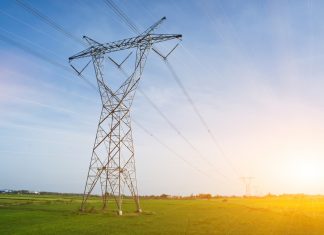When the federal government decided in August to hold a non-compulsory postal survey to poll Australians about their view on same-sex marriage, the decision was met more with groans than acclamation.
Some groaned because they felt politicians should get on with the job they are paid to do and legislate.
Others complained about the survey’s $120 million price tag and some were unhappy the government was not focusing on bread-and-butter issues, such as housing and power costs.
Members of the LGBTIQ community feared they would be subjected to a wave of homophobia and could not understand why people who would not be affected by changing the Marriage Act were voting on it.
However, the government held its nerve and the survey achieved its goal it gave the parliament a clear indication of the national will and Prime Minister Malcolm Turnbull the political authority to legislate for marriage equality.
Nationally, 61.6 per cent of respondents voted in favour of changing the law to allow same-sex couples to marry.
In the federal seat of Gippsland, which includes Morwell, Traralgon and Churchill and continues east to the NSW border, 60.2 per cent voted ‘yes’, opposed to 39.8 who cast a ballot for ‘no’.
In McMillan, which takes in Moe before continuing west to Pakenham and also takes in south Gippsland, returned a higher ‘yes’ vote, with 62.7 per cent giving their affirmation.
Nationally and across greater Gippsland the survey delivered a clear result and it is time for politicians to get on with legislating a change in the law that Australians have overwhelmingly said they want to see happen. When the survey was announced, federal member for Gippsland Darren Chester was quick to declare that he would accept the results of the survey and vote in line with them.
In doing so he promised to keep faith with voter expectations that the parliament would honour the result of the survey, whatever it may be.
Member for McMillan Russell Broadbent would have disappointed many voters in his electorate when he told ABC Gippsland he would either vote no or abstain.
On what is arguably the biggest cultural change in our nation’s history for many years, Mr Broadbent declined to make any comment on his decision when approached by The Express. If MPs intended to ignore the result and vote with their conscience, what was the point of spending millions, causing unnecessary divisiveness and wasting three months asking people for their view?
By deciding to forgo their opportunity to debate same-sex marriage and instead put the matter before ordinary Australians, politicians gave up the right to a conscience vote.
This is not about how Mr Broadbent feels about the issue or how any individual feels; this is about respecting the view of the overwhelming majority Australians – and McMillan voters who participated in the survey. That’s democracy.
That Mr Broadbent feels he can ignore the result of the survey is disappointing. He told the ABC that in doing so he was also representing those in his electorate who voted no. That’s not democracy.
As Liberal MP Dean Smith told the Senate last week when introducing the Bill: “The error of our times, Mr President, is that all too often in this chamber, we seek to advance the base that elected us rather than the nation that needs us.”










